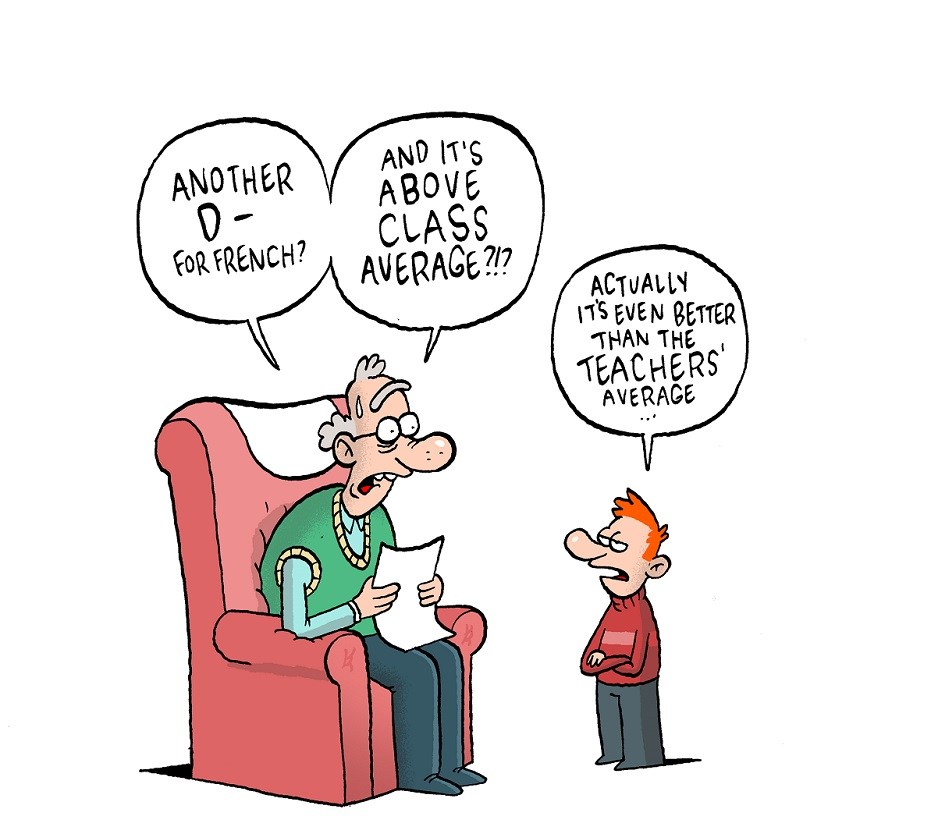There’s something rotten about the state of our educational system. Over the past year, several surveys and analyses have warned of an important qualitative decline.
Students are increasingly less competent in reading, writing, mathematics and other elementary skills. The most recent outcry came from Flemish university professors of French, claiming that the entry level standard of new students is abominable. It is in fact often too low to even begin the studies, let alone successfully finish them.
At the end of 2019, the results of the PISA-report (the Programme for International Student Assessment) were made public. Those results weren’t very uplifting. They showed that besides being less competent in reading and mathematics, the scientific knowledge of our 15-year-olds is also deteriorating.
Perturbed, the Flemish minister of education reacted by calling a team of international experts together. By the fall of 2020, they must have a report ready with recommendations to counteract this decline in subject skills.
More demanding
About a month later, the professors of French published their memorandum. They call for the introduction of non-binding French tests for those students who want to pursue a Master’s degree in languages.
If we don’t react now, an overall qualitative decline is inevitable. We must not lower, but increase our expectations. We must be more demanding.
Economics
The fact that Flemish students are less competent in French is not only a problem for the language departments. This academic year, the University of Hasselt introduced a general course of French at the faculty of economics and business sciences.
They noticed that their students were not able to communicate fluently in French, which significantly weakens their position on the labour market. To meet the demands of the job market, we need to improve our French.
Bilingual in Brussels
We must also strive to get more people to warm to the idea of multilingual education, especially in a city like Brussels. Several politicians in Brussels and leading academics – like VUB-rector Caroline Pauwels – have already emphasized the importance of such an educational reform.
Why shouldn’t students whose mother tongue is Dutch be taught in French more frequently? Why should we confine the use of French to the French class?
Many benefits
There are plenty of benefits to being fluent in more than one language. It contributes to the development of one’s cognitive functioning. It can improve one’s long-term concentration, and short-term focus. Multilingualism is even believed to have health benefits. Some research suggests it helps to keep our minds active better and longer.
But most importantly: another language is a gateway to another world. A language opens the windows of our soul which allows the gentle breeze and fresh air of another culture to drift in. Being fluent in another language helps us to get a better grasp of the world, because it makes our own small worlds a bit bigger.
Reading
We must however not look at schools or politicians alone to tackle the issue. The problem won’t only be solved in class. Change must happen at home, as well. One obvious reason why our linguistic and reading skills are deteriorating is the omnipresence of screens: televisions, computers, mobile phones and video game consoles.
Both as a source of knowledge and as a source of entertainment, it’s hard for books to compete with screens. A re-evaluation of reading – of the intrinsic value of the activity, as well as its outcome – is much needed.
More human
In our multicultural societies and globalized world, multiple languages co-exist. Our daily realities are essentially multilingual. It’s important that our minds sufficiently adopt – and are adapted – to that reality.
Brussels is often considered to be one of the world’s most cosmopolitan, most multilingual cities. It is a matter of common sense consequently to stimulate our language skills as much as possible. Language is the fuel of every conversation; it is a precondition of interpersonal understanding. Knowledge of language is knowledge of each other.
Hence, stimulating multilingualism can contribute to a better world, with more understanding and less conflict. Perhaps it can even help make us better persons. As the old proverb goes – sometimes attributed to Tomáš Masaryk, the great Czech statesman and philosopher – “the more languages you know, the more human you are.”
Alicja Gescinska


